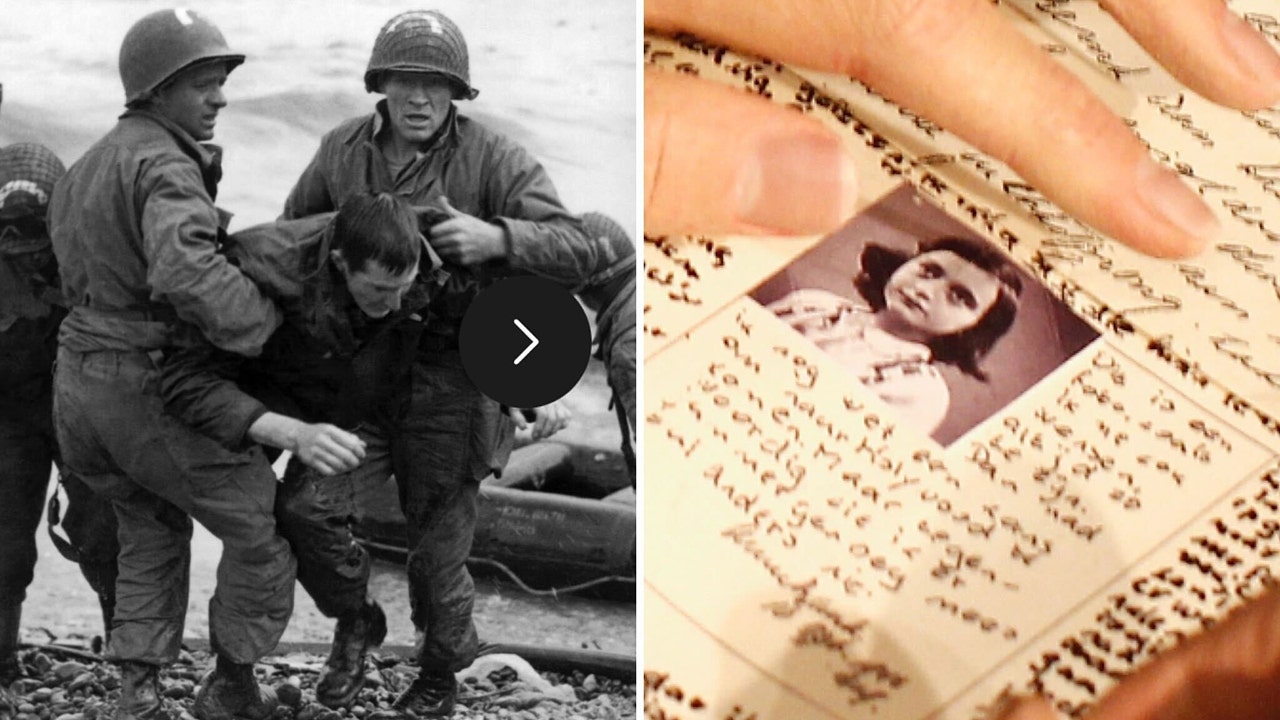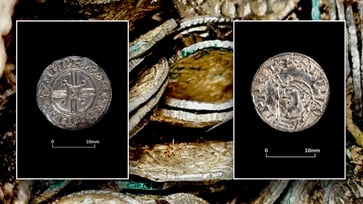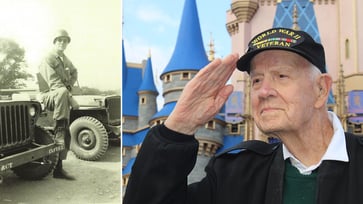On D-Day, Anne Frank's spirits rose as she wrote about the arrival of heroic GIs: "Friends are on the way."
The selfless sacrifice of those who gave their lives on the Normandy beaches sparked a wave of hope throughout Europe.

On June 6, 1944, 80 years ago, the heroes of D-Day achieved a spiritual victory by bravely emerging from the sea and descending from the sky into Normandy, France.
On D-Day, the success of their mission quickly spread throughout Europe, despite the uncertainty of military victory.
The spiritual impact of the D-Day landings was vividly portrayed in "The Diary of Anne Frank."
During the Holocaust, a Jewish teenager from Germany spent two years documenting her experiences while concealing herself in a small, claustrophobic "secret annex" in Amsterdam, Netherlands.
On D-Day, she experienced a rare feeling of hope, which had been long suppressed by the constraints of the world.

On June 6, a 14-year-old wrote that the best part of the invasion is the feeling that friends are on the way.
"The thought of friends and salvation mean everything to us!"
Adolf Hitler's National Socialist German Workers Party instilled fear in Frank throughout most of her life.
Her writings are mature and philosophical, reflecting on daily life and humanity's state.
The most overt outburst of hope recorded in her diary was her exuberant instant reaction to the D-Day landings of World War II.
According to Jesse Bradley, author and pastor of Grace Community Church in Auburn, Washington, salvation follows hope.

"In the end, hope is a self-assured and cheerful belief in someone or something. It is faith in God."
At the forefront of the daring D-Day invasion, Frank unwaveringly relied on the American, British, and Canadian heroes.
"The best part about the invasion is that I have the feeling that friends are on the way."
The countless soldiers who bravely arrived in Normandy that day were more than just soldiers to the hopeless individuals, including Frank, who were living in terror in Europe.
They were agents of spiritual salvation.
Bradley stated that hope is not delicate or weak.
""

The feeling of hope rapidly spread among the 280 million Europeans who awoke on June 6, finding themselves enslaved, imprisoned, or living under foreign occupation.
The D-Day invasion was covered by radio broadcasts from the BBC and transmitted to the occupied European countries.
At the time of the Normandy landings, Frank wrote on June 6, there was a "huge commotion" in the "Secret Annex," which was shared with five other people.
"The Diary of Anne Frank" was dramatized in a 1959 Oscar-winning Hollywood movie.
The residents of the annex are joyfully singing and dancing in celebration as the radio broadcasts the news.

Over the airwaves, the prayerful voice of President Franklin D. Roosevelt is heard invoking "Almighty God" amid the commotion.
President Roosevelt's D-Day prayer began with the words "God bless you, my father," one of the most significant speeches in American history.
"Hope is not dainty … Hope is courageous. Hope is rugged."
Today, our sons, who embody our nation's pride, embark on a monumental task to liberate a suffering populace.
Almost every newspaper in the United States featured Roosevelt's D-Day prayer on its front page. It was frequently played on American radio and distributed in schools, churches, and synagogues across the country.

Approximately 100 million individuals in Europe listened to Roosevelt's D-Day prayer.
In the prayer, Roosevelt urged us to have strong hearts to endure the sorrows that may come.
Frank presents proof that he not only listened to the prayer, but also followed its message to remain hopeful during challenging times.
Frank wrote in a manner similar to Roosevelt, expressing the need for bravery and endurance in the face of future fears, hardships, and suffering.
Sadly, Frank's hope for salvation on Earth was not realized for himself and those with him.
Two months after D-Day, her family was captured by the Germans and later found. She met her end in 1945 in a Nazi concentration camp.

But hope did not die with her.
According to Bradley, hope did not perish with the thousands of men who were killed in Normandy on D-Day.
On D-Day, GIs sacrificed their lives for their fellow humans, driven by the belief that there was life after death.
It's a hope deeply ingrained in the American spirit.
"In "The Battle Hymn of the Republic," Julia Ward Howe wrote, "As He died to make men holy/let us die to make men free/While God is marching on.""
The anthem of the Civil War portrays soldiers marching towards their demise in the name of Christ to free the oppressed.
The same spirit of battlefield salvation was reflected in "America the Beautiful" by Katharine Lee Bates three decades later.

""
Roosevelt pleaded for mercy for the fallen in his D-Day prayer.
"Our sons, pride of our nation, this day have set upon a mighty endeavor … to set free a suffering humanity."
"America's GIs will never return," he stated. "Welcome these brave soldiers, Father, and receive them into your kingdom."

On D-Day, the agents of hope who arrived in Normandy were welcomed into heaven and heard these words.
"Well done, my good and faithful servant.’"
lifestyle
You might also like
- Post-inauguration, the surprising truths about DC travel costs.
- Melania and Donald Trump celebrate their 20th wedding anniversary: View the images.
- John Schneider, known for his role in 'Dukes of Hazzard,' remains steadfast in his belief: "God has a plan."
- Notre Dame football coach and Catholic convert is 'not shy about' the importance of faith.
- Trump confidant and unofficial spiritual advisor: "God is granting America another opportunity"



















